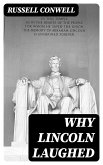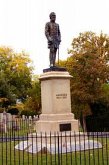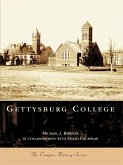In his Gettysburg Oration, delivered on November 19, 1863, Edward Everett crafts a profound meditation on the significance of the Battle of Gettysburg and the broader implications of the American Civil War. With a style that artfully intertwines eloquence and rhetoric, Everett's address echoes the traditions of classic oratory while embedding itself within the frameworks of 19th-century American nationalism. He masterfully employs historical reference, with poignant reflections on sacrifice and unity, framing the address not only as a remembrance of fallen soldiers but also as a call to preserve the nation and its ideals of democracy. Edward Everett was a preeminent orator, academic, and politician of his time, having served as a U.S. Senator and the Governor of Massachusetts. His extensive background in literature, divinity, and politics informed his thoughts on national identity and duty. The oration was delivered during a time of immense turmoil in America, reflecting Everett's profound commitment to the Union and his wish to inspire a collective resolve among a fractured populace. I highly recommend the Gettysburg Oration to anyone interested in American history, oratory, and the themes of sacrifice and unity. Everett's words resonate with timeless wisdom and offer important insights into the struggles that shaped the nation.
Dieser Download kann aus rechtlichen Gründen nur mit Rechnungsadresse in A, B, BG, CY, CZ, D, DK, EW, E, FIN, F, GR, H, IRL, I, LT, L, LR, M, NL, PL, P, R, S, SLO, SK ausgeliefert werden.









